Apply Now For Business Funding
Restaurant owners know that almost every restaurant will need financing at some point. Whether you’re buying new equipment like ovens, ranges, or walk-in refrigerator units, hiring a new general manager, or just need an infusion of working capital, restaurant financing can help your business make the purchases it needs to grow. But because of the volatile nature of the restaurant industry, some small business financing options aren’t available to all restaurants, and it can be particularly difficult to get financing as a startup.
Why Do Restaurants Need Funding?
Social media marketing
Hiring
Bulk supply purchases
Building or buying new locations
Paying off existing debt
Upgrading kitchen equipment
Working capital
Upgrading your POS system
Replacing outdated technology
Restaurant Financing Options
Term Loans
Lenders lend money to make money, and term loans are one of the primary ways they do so. A term loan is a form of restaurant business loan in which the borrowing restaurant receives a deposit up front and then makes regular payments until that loan is paid back with interest.
Your loan amount, interest rate, repayment terms, and payment timing will all depend on your restaurant’s creditworthiness. After all, your credit score is a very simple way of telling lenders how likely you are to repay a loan. The higher your credit score, the less incentive a lender has to give your business a more expensive loan.
SBA Loans
The United States Small Business Administration, or SBA, funds several different loan programs to make low-cost funding available for American small businesses.
SBA 7(a) Loans are term loans of up to $5 million. The SBA works with traditional lenders on 7(a) loans and guarantees up to 85% of the total loan amount. That means that if a borrower is for some reason unable to repay a loan, the lender gets 85% of the money back.
SBA 504 Loans are to be used specifically for buying or building land or structures, heavy equipment, and other facilities. They can also be used to upgrade existing facilities or utilities like roads or landscaping.
Microloans are offered through local non-profit lenders. They must be smaller than $50,000, and have more relaxed qualifications than the other two primary forms of SBA Loans.
The SBA doesn’t want to guarantee loans to just anyone, since the money backing those guarantees is made up of tax dollars. That’s why SBA loans are among the most difficult to qualify for and can also take weeks or months to apply and receive funding.
Equipment Loans
Equipment loans are specifically used to finance the purchase, upgrade, or replace of equipment. This equipment can include machinery, vehicles, computer systems, and other assets that are necessary for the operation of the business. In restaurants, that can mean cooking or storage equipment along with furnishings, POS systems, and more.
The loan is secured by the equipment itself, which serves as collateral for the lender. This means that if the borrower defaults on the loan, the lender can seize and sell the equipment to recover their funds.
Business Lines of Credit
Another popular form of lending for restaurateurs is the business line of credit. Business lines of credit are excellent for ensuring you’ve got a backup stash of cash flow to help deal with emergencies and opportunities for your restaurant.
Lines of credit are offered by many financial institutions, from traditional banks to online lenders. With a business line of credit, the lender will instead assign your company a credit limit. You’ll only pay interest and make payments on money spent under that credit limit. In this way, these credit lines function much like credit cards.
There are a few other things to note about business lines of credit for restaurants:
They can be used in a variety of ways. Cash from your line of credit is typically spent either through a card or by transferring it to your business’s bank account. So you can use it for anything from dining room renovations to payroll, or even purchasing a food truck to make your restaurant mobile.
You should consider getting a line of credit when your credit score is at its peak. Unlike aforementioned merchant cash advances, many lenders offering lines of credit will want to take a deeper look at your company’s finances.
Use your line of credit when short-term emergencies or opportunities spring up. If a piece of restaurant equipment breaks, or your company is offered a discount on a huge marketing campaign, having a line of credit ready and waiting means you can act quickly.
Alternative Financing: MCAs and Invoice Factoring
Merchant Cash Advance
A merchant cash advance (MCA) is by definition not a loan. Instead, when you receive a merchant cash advance, the MCA provider is purchasing a significant share of your future credit and debit card sales. Because MCAs are not loans, they’re not subject to many of the laws and regulations that typical small business loans are subject to.
An MCA works like this: after a very brief application process, an MCA provider will buy a portion of your company’s future credit and debit card sales. After that, you’ll make payments each day or week by calculating a percentage of your credit card and debit card transactions. On days you make lots of transactions, you’ll pay back more. On days with fewer transactions, you’ll pay back less.
MCAs are particularly helpful for new businesses or companies with poor credit. That’s because what’s important to MCA providers isn’t your credit score or some of the other factors traditional loan applications ask about. MCA providers care about the volume of your debit and credit card transactions. If you’re relatively new in business but are processing lots of cards, that’s usually just as appealing to an MCA provider as a long-established company processing the same amount of debit and credit card sales.
That number won’t change no matter how quickly you pay back the advance, which makes it different from a more traditional bank loan. In fact, paying a cash advance quickly actually drives up the APR on the advance.
Other benefits to MCAs include:
They’re very fast. Small business owners in need of cash very quickly should know that MCAs can hit your company’s bank account as soon as the very same day you apply. Other funding options, like SBA loans, can take weeks or even months to reach your account. In a busy industry like the restaurant business, you might not have that long to make the purchases you need. If you’re running a baker and your oven breaks down, you need a replacement immediately. MCAs can help with that.
They can be used for many business needs. Other types of funding, like equipment financing, can come with strict regulations about how the funding must be used. You can’t use an equipment loan to buy real estate. However, MCAs have effectively no limit on their usage. You can use an MCA to upgrade kitchen equipment, hire an employee, take out an ad, or function as working capital.
Most MCAs don’t require collateral. Some types of loans will require you to put up your business’s assets (or your personal assets”) as collateral in case of default. Not so with MCAs.
Invoice Factoring
Invoice factoring is more commonly seen in businesses performing transactions with other businesses. Because you’ll need lots of outstanding invoices, eligibility can be tough for restaurants.
If your restaurant does a lot of catering work or otherwise takes on invoice-heavy clientele, it could be an option. If, for instance, your restaurant provides food for weddings or other events each weekend, you may end up with thousands in outstanding invoices. Those can be used for factoring.
In invoice factoring, a factoring company purchases your accounts receivable. The company receiving the funding gets a portion of the invoice total, and then the factoring company accepts the payments in full.
As noted, the invoice-focused nature of invoice factoring means that they’re not going to be a great option for every restaurant, but for the right restaurant, invoice factoring can be hugely beneficial. If you run a bakery and have a regular contract with a restaurant to supply bread, for example, you might be eligible.
The LCF Group is Here to Help
The LCF Group is a boutique marketplace business financing firm with over 11 years of experience. Our financial experts use their small business ownership experience to provide the funding solutions you need without the confusing terms and technical jargon you might see from other lenders.
Business owners have all sorts of loan options available in today’s lending environment. Finding a lender that’s willing to find the right financing with the right interest rates and repayment terms is key to ensuring that your restaurant can function as intended.
The LCF group funds new restaurants and established ones, fitting with our goal to make sure every small business in America has access to the funding it needs to succeed.
Latest Blog & Articles

Effective Budgeting Tips for Small Business Owners
As a small business owner, managing your business finances effectively is crucial to the success and long term viability of your business. A well-structured budget helps you allocate resources efficiently; prepares you for unexpected costs; and ensures the growth of your business. This article will provide comprehensive budgeting tips and strategies tailored for small business owners that will help you navigate the complexities of financial management.

The Essential How-To Guide for Funding Your Restaurant
Starting a restaurant is a dream for many entrepreneurs, but turning that dream into reality requires more than just culinary expertise. One of the biggest challenges for restaurateurs in launching a restaurant is securing the necessary funding. Whether you’re opening a new restaurant or expanding an existing one, navigating the world of restaurant financing can be complex – but we are here to help.

Securing Business Funding with Bad Credit in 2024
Obtaining financing can be a pivotal step for small business owners looking to scale their ventures. However, for those with less-than-stellar credit scores, navigating the realm of business funding can feel daunting. Thankfully, even with bad credit, options exist to fuel your business aspirations. In this


